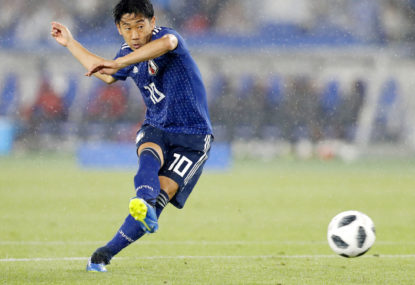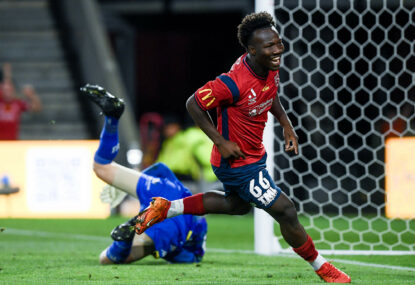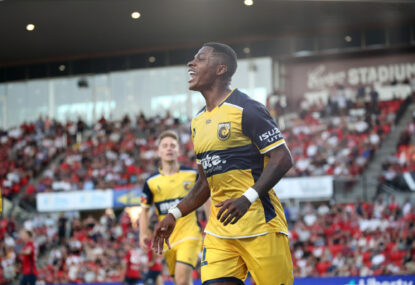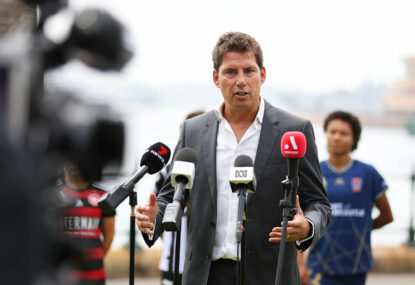The 2018 edition of the FIFA World Cup has been full of surprises and memorable moments, to say the least.
One of the biggest surprises of the tournament was the underdog performance of Japan. Ranked 61st in the world, Japan was the lowest ranked Asian country heading into the World Cup. Other qualifying Asian countries ranked above the Samurai Blue were South Korea at 57, Iran at 37 and Australia at 36.
Looking at those rankings, it would be fair to say Japan and Korea had the unlikeliest chances to progress past the group stages.
Japan’s lead-up to the tournament did not inspire confidence. They played five games in before the tournament this year, of which they won one, drew one and lost three. Not the start you would be hoping for as a supporter, official or player.
That said, in the last game pre-tournament, they beat Paraguay 4-2. That may not sound like a great feat, but Paraguay are currently standing 32 in the world rankings, so no pushover.
The Samurai Blue boast a lot of talent – many of the team play in highly competitive leagues across Europe. In fact, more than half of the Japanese national team plays in Europe, unlike South Korea, where the majority of their players play in the domestic league or in Japan.
The most notable Japanese player is Shinji Kagawa, a standout at German club Borussia Dortmund. As an attacking midfielder, Kagawa has scored 20 goals from 97 games since 2014. Another Japanese star is forward Shinji Okazaki, who plays for English club Leicester City. Okazaki has played in 93 games, scoring 14 goals. He was also part of the 2015-16 Premier League campaign that saw Leicester crowned champions.
Japan was drawn in a tough group, asked to contend with Colombia, Senegal and Poland – all of whom are in the top 30 of FIFA’s world rankings. When the group was drawn, a lot of people stated Japan would find it hard to advance, with Colombia ranked eighth, and the talented Poland likely to advance.
But Japan stood up. In their first group game against Colombia, they played attacking football. In front of 40,000 people, it was a high intensity game from the get-go. Some luck went Japan’s way early when they won a penalty in the sixth minute, resulting in a red card for Carlos Sanchez. Shinji Kagawa stepped up to the spot and put it through for the first goal.
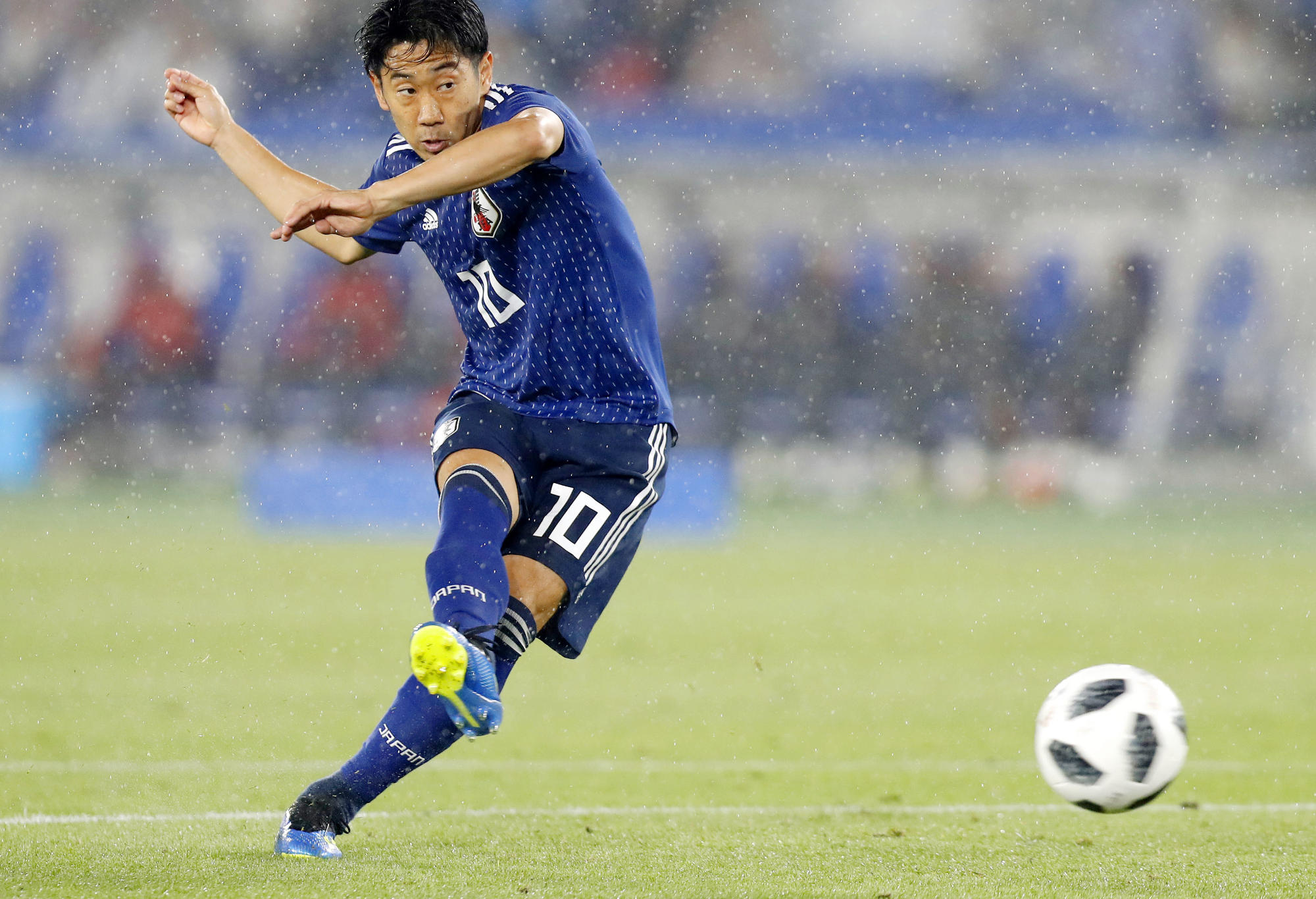
Japan midfielder Shinji Kagawa. (Kyodo via AP Images)
From there, the game continued to be a hot affair with Colombia struggling with ten men. But they managed to equalise in the 39th minute when Quintero scored an absolute screamer. Following half-time, both teams failed to execute from prosperous opportunities.
Japan seemed to be the hungrier team, though, playing an attacking style of football which left them vulnerable. However, Colombia failed to make good of the mistakes made by the Samurai Blue. Japan’s Osako scored the winner halfway through the second stanza, leading his side to a 2-1 win.
Japan would then go on to face the best team out of Africa. Senegal showed they had a spark of their own when they defeated the Polish team 2-1. The contest proved to be one of the best group games of the World Cup, a high-intensity game with a lot of highlights.
It was a shootout from the start with Senegal leading 1-0 after the 11th minute, but then Japan equalled the score in the 34th minute. Senegal’s Wague scored in the 71st minute to restore the lead. Many thought the Japanese would then drop away, but the Samurai Blue had other ideas. Japan subbed on one of its most decorated players, Keisuke Honda. He scored an absolute blinder in the 78th minute to help his team to a 2-2 result.
Japan went into the game against Poland confident they could advance into the round of 16. That was shown pre-game when the Japanese management made five changes to their team from the Senegal game. Arguably Japan’s best player, Shinji Kagawa was rested, raising a few eyebrows. All Japan had to do was secure a draw and they would advance with no issues.
Colombia had beaten Poland 3-0, so Poland knew their tournament was over. Senegal and Colombia also had to draw so Senegal would advance. But both games did not go the way they would have hoped. Japan ended up losing to Poland 1-0, while Senegal lost 1-0 to Colombia. Japan and Senegal found themselves in a deadlock.
For the first time in history, a team would advance out of the group stages by the yellow card rule. The team with the fewest bookings would advance. Japan only had four cards to Senegal’s seven. The Japanese discipline cemented their round of 16 spot.
It would only get harder from there, though. Japan drew one of the tournament favourites in Belgium. Heading into the game, no one backed the Asian side to get the job done.
With a nation behind it and more than 15,000 Japanese supporters in the stadium, the Samurai Blue at one point looked to have secured a shock win over Belgium. But it was not to be. The game was deadlocked for the entire first half. In the 48th minute, Japan managed to take the lead through a Haraguchi goal. They then rubbed further salt in Belgium’s wound, scoring less than five minutes later.
Belgium, however, would not be denied. The favourites hit back with two quick goals in the 69th and 74th minute to square things up. Both sides created chances in the last 20 minutes, but the game appeared headed to extra time. But just before the final whistle, Japanese hearts were broken. Belgium proved why they were the favourites when they scored the sealing goal with the last kick of the game. Japan’s glory 2018 World Cup run had come to an upsetting end.
Japan surprised many when, after securing their second goal in the 52nd minute, they kept playing an attacking style of football. Most teams in that position would play a very tight, defensive style of game. Because the Samurai Blue persisted on playing attacking football, they were exposed on the counter-attack.
No doubt that fact will haunt the players, coaches and fans for a long time, especially thinking about how it could have been one of the all-time World Cup upsets. That title will now belong to South Korea after beating reigning champions Germany 2-0.
Even though Japan only has themselves to blame, they should be pleased with themselves for overcoming huge obstacles to put themselves in that position. You also need to look back at history and see where Japan has come from.
Before the 1998 World Cup, Japan had failed to even qualify for a World Cup. Since qualifying for their first tournament in 1998, Japan have made it out of the group stage three times from six attempts. That is an impressive strike rate. Japan has always dominated the Asian Cup scene, but has failed to make it past the round of 16. Against Belgium they could have broken that curse, but today it still stands.
The Samurai Blue now look ahead to the United Arab Emirates, which is hosting the 2019 Asian Cup in January. Japan looks to dethrone Australia as the Asian champions. No doubt, Japan, Australia, Iran and South Korea will be in the running to take it out. If Japan and Iran field their best line-ups, don’t be surprised to see those two teams in the final.





























































































